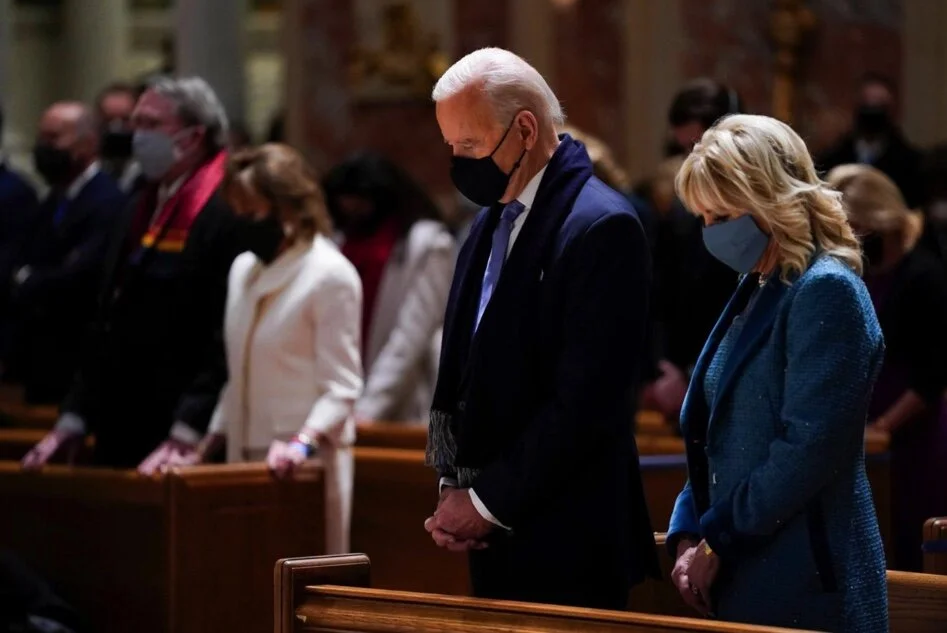There can be no "unity" through the rejection of tradition
Pope Francis at the horrifyingly untraditional Pope Paul IV Audience Hall
Yesterday, Pope Francis issued a motu proprio, ironically named Traditionis Custodes (“Guardians of the Tradition”), which, in the name of “unity,” seeks to bring the hammer down on the Traditional Latin Mass (TLM). This act, which some say rests on shaky legal grounds, attempts to undo Pope Benedict’s Summorum Pontificum, which gave generous latitude for the use of TLM. There has been a flurry of commentary on the particulars, and I am not educated or energetic enough to duplicate those efforts. If you want a thorough, point-by-point analysis of the document, I recommend the video at the bottom of this post.
I want to be very clear that although I have only attended a TLM about eight times in my entire life, I throw my full support and sympathies behind the Church’s TLM communities and priests, many of whom are my dear friends.
But for today, I’d like to discuss the goodness and importance of tradition in general and the disaster that occurs when we toss it out, whether we are breaking with Church traditions, cultural traditions, national traditions, or family traditions. (Clearly, I am not speaking of any evil “traditions” or sins—and I hope that goes without saying.)
I was born in 1967, and I have no memory of anything prior to Vatican II. I was horribly catechized (essentially un-catechized) like the rest of my generation, and when I found out how much had been kept from me, I felt robbed. I even initially called my reversion story “I Was Robbed!” The break with Church tradition in the past 50+ years has been catastrophic by any objective measure. The Roman Catholic world was unified prior to that break, and sharing the same universal and ancient liturgy was key. We went from unity and a shared identity to disunity and a loss of identity. A break from Church tradition led to division and alienation.
The disjointing that occurred in the Body of Christ also happens in the other social spheres—family, culture, nation—when we renounce our traditions. For example….
Family
The most obvious and common way that a family severs its members from its own tradition is through divorce. Here’s how one man described his childhood to me, both before and after the dismantling of his family:
What hits me the hardest is that there is no “going home” anymore….There is no childhood place to which I can return. When parents in intact families move to a new house after the children grow up, there is still that place to go where the two parents act as they always have: … Dad chops the firewood while Mom cooks dinner, the same Christmas decorations go up (albeit in different places), Dad cuts the ham, and so on. Familiar smells with familiar activities. For children of divorce, all those reminders of the home they grew up in are gone. “Home” isn’t really a place, after all, but an experience. With divorce, that experience is immediately gone, with no warning or preparation.
The family went from unity and a shared identity to disunity and a loss of identity. A break from family traditions leads to division and alienation.
Culture
When a society breaks from its timeless traditions and innate understandings, it’s also to devastating effect. Consider my dear friend and pro-life warrior Obianuju (Uju) Ekeocha’s searing words to a Danish abortion activist. You should back up the video and listen to the Danish woman, but I have queued the video to Uju’s brilliant and scorching response, which includes the admonition to the pro-abort that Uju’s Nigerian tribe does not even have a word that could twist the concept of abortion into something good, and that any attempt to do so by the western abortion-peddlers would require teaching young Africans that everything their families and ancestors had taught them has been wrong all along. Watch Uju’s master class in schooling a pro-abort who seeks to destroy the ancient traditions of the naturally pro-life African people:
Our western culture is in danger as well, due to sudden and jarring turns from our own tradition. From a US census report: “Millennials in the United States have a different set of values on social and economic topics than the generations before them,” and “more than half—55%—believe marrying and having children is not very important.” This is a cataclysmic, and unnatural, break from the past. No society can survive its young people not wishing to form families through marriage and procreation. And it’s not just the US, of course; it is most of western culture at this point.
A culture that breaks from its ancient traditions and understandings goes from unity and a shared identity to disunity and a loss of identity. A break from societal traditions leads to division and alienation.
Nation
The traditions of a nation, and the virtue of patriotism, unify its citizens. In the 1970s and ‘80s, I attended public schools, K-12, in a heavily Democrat city (Tucson, AZ). And yet, as all American schoolchildren in the past, we were taught to love our country. Patriotic expression through stories, songs, poems, and flag-waving was a good thing, a given. We learned about the founding of America with pride, and we were profoundly, happily connected to what came before us. My husband says the same about his own schooling at the time, and he was a mostly secular, liberal Jewish kid growing up in the South.
In recent years, however, things have radically changed. We know well that the average school kid today is taught to suspect and even despise this nation and its founding, and traditional patriotism is seen as racist. We have cut off American children from their patrimony, their history, their traditions—and thus a part of themselves. (And please don’t tell me that immigrant children have no such connection. My father was a refugee immigrant, and he’s the first one who taught me to be a proud American! There has never been a stronger American patriot than Farouk Habra.)
The change in our nation’s young people has been shocking to observe, particularly because of how quickly the change has come. Once a person is persuaded to rail against his own homeland, when he is convinced to hate what his own parents and grandparents cherished, the future of that nation is in peril. Marxists, even under the name of BLM and “progressivism” in our own land, know that to take a nation, they must first separate the people of a nation from their past, rupturing their revered cultural and religious traditions, in order to disorient, demoralize, and reprogram them, erasing the “collective memory” that formed the bonds of the generations.
A nation that breaks from its traditions and foundations goes from unity and a shared identity to disunity and a loss of identity. A break from national traditions leads to division and alienation.
You get the point, and the pattern. Without the connections of our traditions, we humans are adrift and vulnerable; isolated from each other and our past, we can be re-made into whatever evil image a malicious actor may impress upon us. Without our traditions, we lose—and even begin to despise—our families, our cultures, our nations, and our Church.
In the life-changing book, What We Can’t Not Know, Professor J. Budziszewski (a former atheist) describes tradition as:
…a sort of apprenticeship in living, with all of the previous generations as masters, and includes not only ways of doing things, but ways of raising questions about things that matter. (p. 174)
And G.K. Chesterton famously stated in Orthodoxy:
“Tradition means giving votes to the most obscure of all classes, our ancestors. It is the democracy of the dead. Tradition refuses to submit to the small and arrogant oligarchy of those who merely happen to be walking about.”
Tradition is good and necessary. Tradition is not to be disdained, fought against, or cast off like Grandma’s old chotskies. Tradition unifies; it does not divide.
I love the traditions of my family, my culture, my nation, and especially my Church. If loving Catholic tradition, defending Catholic tradition, advocating for Catholic tradition makes me a “traditionalist”—then so be it. I can think of a lot worse things to be.






